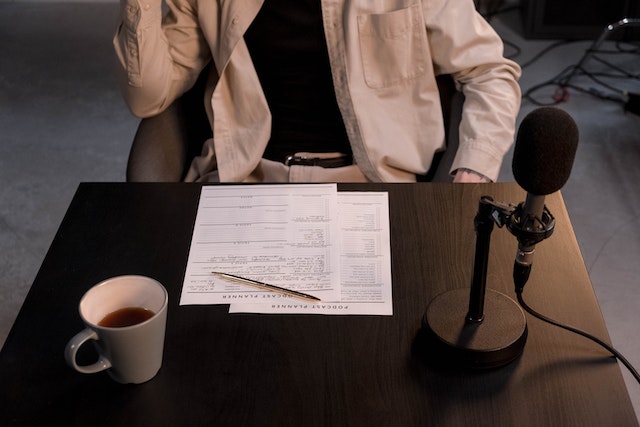There are podcasts for just about every subject now. Not only every subject, but every angle and facet, which makes standing out difficult. However, with such a rabid audience, you’re bound to find people looking for your unique voice and input. If you run a small business, you’re likely busy most days, but a podcast can be a fun way to get more eyes on your company. If podcasting is something you think you’d enjoy, here’s how to get started without getting overwhelmed.

Choose Your Theme
You can podcast about anything, but don’t get invested without defining a theme. You may think making a podcast about anything and everything gives you a lot of freedom, but it’s extremely difficult to build an audience that way. Variety podcasters succeed because their audience enjoys listening to them, but as a new podcaster, you won’t have that luxury. By defining your theme and the subjects you’ll talk about, you’ll be able to target a specific need in the podcasting space. Do you want a podcast about your industry? Running a business in your industry? Brainstorm a list of topics you would have found useful, like finding personal liability coverage, and find a way to make it interesting to listeners.
Set Expectations
If you’ve already got a following online, you might get some of them to follow you to a podcast. Otherwise, you’ll be starting from scratch, and it may take some time to get more listens. Don’t get discouraged! Take some time to decide if you actually enjoy podcasting before you invest too much of your time and energy into it. How often do you want to record? How often can you realistically record? Once you develop a schedule, your audience will become used to it and expect episodes on certain days. They’ll be disappointed if you get too far off schedule, and they may listen to something more consistent, so only commit to what you know you can deliver. You can always bump up your posting frequency later on.
In addition, you don’t have to have the fanciest equipment when you start out. Find a good microphone and a good place to record, then learn a bit about sound editing. As long as the audio isn’t distracting, your listeners won’t mind.
Develop a Process
To help you remain consistent, develop a process you can stick to. If you want to interview guests, create a procedure for reaching out to people and scheduling interviews. Don’t be surprised if you get rejected, but also don’t be surprised if you’re invited to guest on other podcasts! Trading content like this can be a great marketing tactic and a way to share audiences. Set aside time for recording, and time for editing. Have a general idea of the time frame you want to stick to. Short episodes are easy to digest, but slightly longer ones can offer good information. Just don’t be afraid to cut the fluff and offer your audience the most valuable bits.
Practice Recording
Before you jump into your first episode, practice recording. You can do this by practicing your intro and outro to get a feeling for your equipment, and you’ll know if any adjustments need to be made. If you’re nervous, this is also a way to ease into it. A lot of people aren’t used to hearing their own voices on a recording, so don’t worry if it feels strange at first. You can also let a close friend or family member give you some advice if you give them a short clip. It’s important to remember, however, that someone in your desired audience is more likely to give you the best and most honest feedback.
Podcasting is a great element to add to your current business practices if you have the time and the creativity to bring something unique to the table. When you develop a process that works, you can expand your audience and have fun doing it.


Leave a Reply